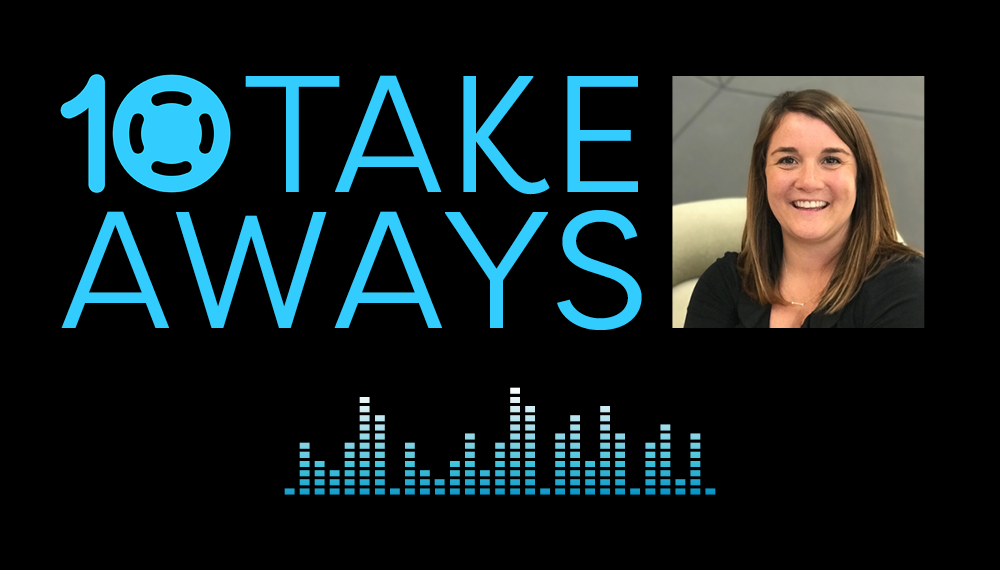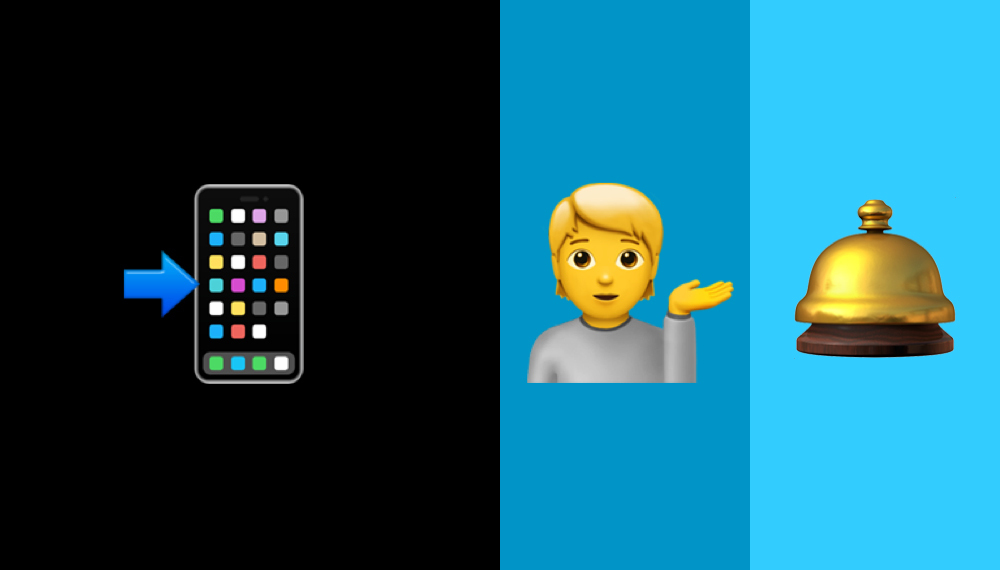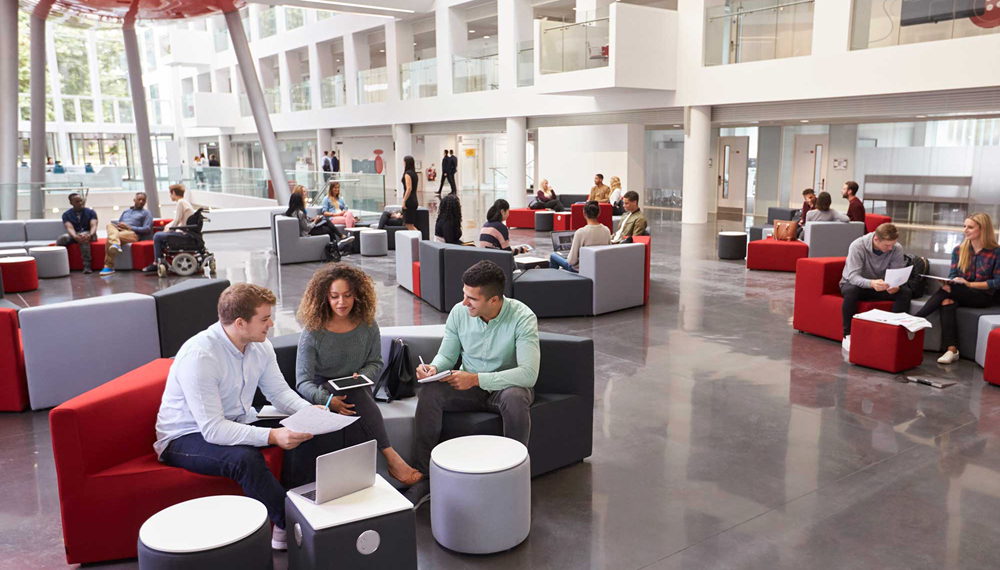
TEN Takeaways from Annie Rinker, Director, Office of Innovation, Hines
ICYMI: HILO’s David Abrams welcomed Annie Rinker, Director, Office of Innovation at Hines to the TEN Podcast to chat about how tech is changing tenant experience. Here are our TEN takeaways:
1. The customer = the tenant
Annie explains that historically, real estate hasn’t done a great job in defining who the customer is. She believes that her time working with Oliver Carr Jr. provided a great start to her career in re-defining who the customer really is. “One of the things that we got to do is work a lot with Oliver Carr Jr., who is now in his 90s, but he’s been a visionary of real estate, especially I think, in the co-working world. And he has been incredibly forward looking at what this product needs and really focused, I think on the customer, the tenant.”
2. Technology is changing the client experience
Annie touches on the impact technology is having in the built world during her time at Hines. She says, “Joining the office of innovation at Hines, you know, there’s so much innovation happening in real estate and the office of innovation. They formed it several years ago to sort of look at all of those different things, including flexibility, and amenities, and programming and, you know, space utilization, all these different things that are happening in real estate right now. But a big part of it is how the technology is really changing the client experience and the expectations and how they work.” She hopes to bring all the operational knowledge that she has to really enhance the experiences of clients and drive the Hines global portfolio forward.
3. People want engagement
Annie believes that technology is enabling the modern day tenant to be able to interact with their building. “The reality is that is what the people want. That’s the experience that they want to have in our buildings. And there’s a lot I think, you know, 10 years ago we weren’t there because technology wasn’t there. I think just where we were from a generational standpoint wasn’t quite there, but where we are today with technology and the people actually engaging in our buildings, that’s exactly what they’re looking for.”
4. Technology rescues the property manager
Annie and David discuss the role of a property manager. Annie explains that “through automation and machine learning, we can take a lot of the things that historically engineers and property managers have done and automate it, and make it so that they can focus on other things. She continues by saying, “With what’s happening in our industry and the different tools and resources that are out there, we’re able to remove some of like lease administration from their plate, and have them focus on some of the softer things, some of the like EQ based things, that really the people occupying our buildings now want.”
5. Listen to your gut
Reflecting on her decision to pursue a master’s degree at Georgetown University while also having other commitments to balance, Annie trusted in her own instincts to take her to where she is today. “I went back to get a master’s in real estate finance and development from Georgetown University. So I could have an understanding of co-working and traditional real estate, and really start to be the bridge between those two. So I could talk operations and then sit in front of an asset manager and talk about the financing of the building. And so that they can start to understand how the operations and the cash flows that we have on the operating side, actually impact the building and how we can fully integrate the product. And so, you know, again, I think listening to my gut was a big part of that.”
6. Even if it’s not your strong suit, really dig in
Annie credits her understanding of finance to a better understanding of real estate. She recalls, “You know, for me, like taking a finance track was probably the last thing I wanted to do. Like not a huge fan of numbers, but at the end of the day that was actually phenomenal advice. And I’m really thankful to him that he led me down that path because I do understand it better. I understand the whole entire project cycle from a development standpoint, and the, you know, the different capital stacks that we’re dealing with, and all these different things that I can, again have those interactions with asset teams and the management teams on the traditional real estate side. So I would say like, even if it’s not your strong suit, really dig in and try to understand financing if you’re taking on a real estate role.”
7. Work hard to establish and maintain relationships
Annie believes that relationship building has been something that has served her well in her career. “You need to really work hard to establish and maintain relationships, you know? And whenever somebody who you think is interesting and you want to learn from, most people are very flattered by the opportunity to teach somebody else something.”
8. Never stop reading
Advice from Annie: “I think reading is really important. I read probably an average of an hour to an hour and a half. Every single morning, I just wake up early. And so I can read and whether it’s through a podcast that I listen to or books that I’m currently reading, or news alerts that I set for myself for companies in this industry, or, you know, whatever. I think that it’s really important to stay engaged with others who have similar outlooks and also different outlooks to you.”
9. Data drives decisions
Annie shares that her team is exploring the use of sensors to gather data and use the analytics to deliver a better tenant experience. “The whole point of the sensor, is not just to gather data, it’s actually to be able to do something that betters the tenant experience, or betters our, you know, our property management team, make something more efficient, like we need to be able to actually distill that data down and do something with it.”
10. The office is not dead
David asks Annie if there is anything that she is curious about right now and they discuss the future of the office. Annie says, “I don’t believe that the office is dead, but I do believe that there’s going to be a shift to a much more high touch, high caliber, high experience product. And so I think I spent a lot of time sort of thinking about what that means. What does that mean for property management? What does that mean for the projects that we develop? What does it mean for the design? How can we incorporate the coworking in there? Because at the end of the day, you know, I don’t need to come to an office anymore. Most people aren’t going to need to come to an office, and so if the office becomes more of a want than a need, then how are you going to attract people into your product? And I think that that’s a big question that a lot of developers need to answer.”
- November 25, 2020


